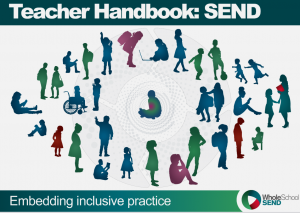
This website is focused on developing adaptive expertise for both our Teacher Educators (TEs) and Beginning Teachers (BTs). Adaptive expertise is recognised as being principled. We develop our expertise by relating observed practices to principles generated from the evidence-base for teaching. Informed professional dialogues are one essential way that such connections can be made. This website has used the five core areas of the Core Content Framework to organise and specialise our understanding of professional principles. Each tab contains information about the significance of the professional concept, as well as example questions and resources that relate to each of the five concepts. By providing easy access to principles and examples from the evidence-bases we believe that this will help TEs to make explicit, why we make the choices that we do in teaching. The website can then be brought into a dialogue that is exploratory, evaluative and elaborative.
Hold on tight to that coaching space
In this short video , Professor Rachel Lofthouse from Collective Ed based at Leeds Beckett University, shares some thoughts about coaching in education, contrasting it with mentoring. Rachel encourages us as coaches to ‘hold the space for the person to do their best thinking’. Within SSTEC we use our five areas (assessment, behaviour, curriculum and subject knowledge, pedagogy and professional behaviours to help to hold the space and to frame it with professional thinking beyond our own individual experiences.
We would be really interested to know how what Rachel says chimes or contrasts with your own experiences as either a coach or a coachee.
Inclusive pedagogy
Many TEs seek resources to support their BTs in relation to SEND and inclusive pedagogies. We would recommend that both you and your BT register with the Whole School SEND website, hosted by nasen, which provides you with free, easy access to high quality information, resources and CPD to support a whole school approach to inclusion. The site can be found at https://www.wholeschoolsend.org.uk/. Once you have registered we suggest that you visit the initial teacher training pages available at https://www.wholeschoolsend.org.uk/itt-resources. There you will find this handbook:
which we have referenced throughout the site. The handbook and materials are helpful to colleagues in both mainstream and special school settings, and align closely with the ethos of adaptive expertise.
A number of our Teacher Educators have begun to use this site in their work. Marine and James describe how they have used the site and different sections, they share how the site can be part of the dialogue rather than separate and addition to.

The use of questions, and an analysis of the responses enables a professional learning conversation that is….
Exploratory. This is characterised by:
- Seeking clarity, through ‘unpacking’ the thinking that lies behind what has been observed. This should be done in relation to one of the five areas. It is important to give a strong focus to the exploration, otherwise the conversation could become overwhelming, if too many concepts are covered, or too generic, if it is just a description of what has happened.
- Accessing relevant information in relation to a shared professional purpose, in other words, we use the concept to build coherence and avoid the fragmentation or atomisation of professional knowledge.
Evaluative. This is characterised by:
- Focusing on valuing the impact of our actions, both on pupils and on professional learning. Evaluation is carried out in relation to what we value in the profession, and the educational purpose of why we value what we value is made explicit. This enables appropriate support and challenge in relation to the development of professional learning.
- Valuing deep conceptual knowledge. Evaluation is predicated on using evidence critically so as to enable a systematic professional knowledge development. We can challenge assumptions and misconceptions.
- An atmosphere or trust built through a sense of shared purpose – the improvement of professional knowledge and understanding so that education is transformational for our pupils.
Elaborative. This is characterised by:
- Drawing on evidence beyond the context, so that learning can be professionally enabling rather than an approach being restricted to a particular context.
- Being explicit about the five core areas. These are referenced regularly so that professional knowledge is deliberately and intentionally related to these. This will help you to be discerning and selective in noticing and responding to what matters.
- Valuing coherence in professional learning. This helps both you and your beginning teacher to contribute to professional knowledge conversations beyond your context.
What might adaptive expertise look like in teacher education?
It could involve
- Joint lesson planning, with a focus on one of the five areas, to make explicit how professional understanding informs our pedagogic choices
- Discussing the school curriculum with the BT and explaining how the curriculum has been designed to support learners in your school setting.
- Model how you develop your own subject knowledge and awareness of key curriculum concepts to the BT so they understand the importance of this throughout their teaching career.
- Sharing and modelling assessment practices within the class, key stage and school as a whole
- Sharing useful resources and documents around assessment practices Joint planning (modelling how building in assessment opportunities should be part of the planning process)
We asked a Teacher Educator working in a Stoke on Trent school, how they have helped an Early Career Teacher who needed more support with classroom management
“My trainee was struggling to set clear expectations for behaviour and, as a result, pupils were often unfocused and disruptive in lessons. It was important that behaviour became a key focus of my mentor meetings with my trainee.
We discussed the issues he was having and chose several strategies to improve on these areas. He came to observe me teaching and I made a specific effort to show how I was managing behaviour. After this we discussed how I had approached behaviour in my lesson and I observed him trying the same in his.
Following on from this, we practised specific techniques he could use and, again, I observed him using these in his lessons.
The impact was that his behaviour management dramatically improved and the pupils are now making good progress in his lessons.”

The Professional Learning Conversation Section of the website is divided into five sections, Assessment, Behaviour, Curriculum, Pedagogy and Professional Behaviours. Each section has three segments, one that articulates the significance of each concept in relation to professional knowledge, one that offers example questions. They are illustrative questions, rather than an exhaustive set. The final section links to resources that are freely available that will enable you to be exploratory, evaluative and elaborative in approach. We very much hope that you enjoy bringing these materials into your educative mentoring.
Educative Mentoring
Feimen-Nemser (1998, p. 66) first coined the term ‘educative mentoring’ as ‘mentoring that helps novices learn to teach and develop the skills and dispositions to continue learning in and from that practice’. The approach builds supportive analytical reflection as part of developing agency within the professions. The analytical approach is enabled by always referencing key concepts as a means to evaluate practices. This is what makes the approach educative. Both the mentor and trainee refer to key concepts such as those associated with assessment or curriculum or subject knowledge. This means that they don’t simply describe or re-tell experiences, but analyse them in relation to selected principles. In this way the ‘learn how to’ and ‘learn that’ statements of the CCF are connected.
Educative mentoring is
- informed by reference to professional knowledge (e.g. areas of the CCF), rather than personal preferences – there is recognition that a range of appropriate solutions may be valid, not just a single approach.
- conscious that there is a need to make visible through talk or by reference to documents or materials, that which is invisible through observation alone
- respectful that teaching is a practical profession underpinned by an informed philosophy. It is not just about visible practices. The dialogue moves from the specific to key concepts iteratively.
- focussed on how teaching enables learners
- respectful of the fact that searching for a deeper understanding of curriculum, pedagogy and assessment should be seen as a positive feature and is never ‘finished’
- simultaneously rigorous, challenging and nurturing
- Respectful of the asymmetry of the relationship between mentor and trainee in an empowering and enabling rather than in an authoritarian manner
- ambitious that dialogues draw on a range of resources and references, not only those visible within the school context.

